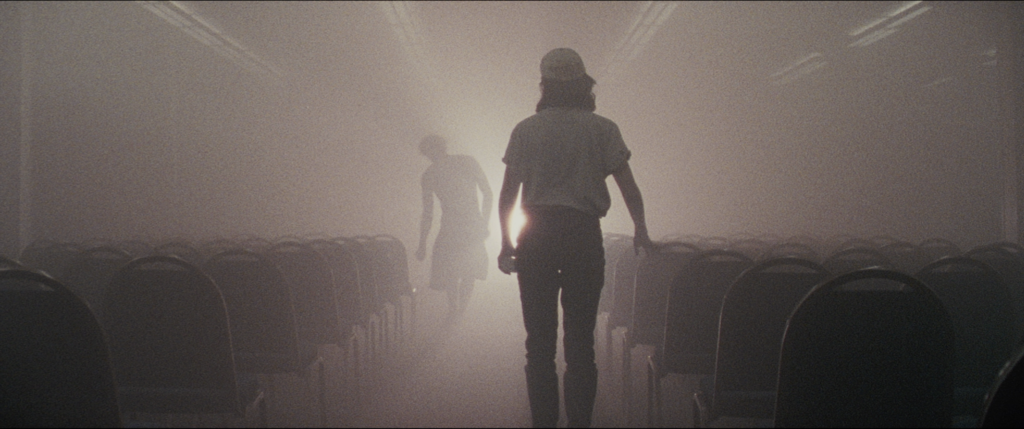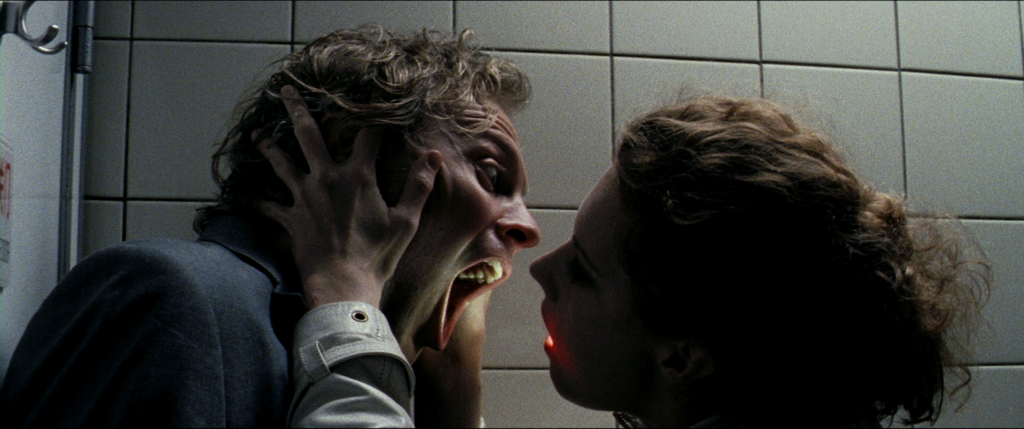
In my experience, both as a film critic and as a lifelong fan of offbeat genre cinema, I’ve seen a lot of low-to-no-budget movies. Like, a lot a lot. As one can probably imagine, this realm contains a healthy amount of the least watchable movies I’ve ever seen, but it also accounts for some of the most audacious, inventive, and memorable. As I’ve grown older, approaching these films with a more analytical eye, I’ve come up with a general unifying theory: the less a novice filmmaker attempts to emulate “real” movies, the more likely they are to succeed. Unless you’re, say, a twentysomething Robert Rodriguez, the action comedy you shoot on weekends with your friends is never going to compete with the latest Fast & Furious installment, because you’ll be playing by a rulebook that the studios wrote and perfected. But if you’re unafraid to take chances– to devise your own cinematic grammar– you can defy comparison to the Hollywood machine, and create something weird, wonderful, and entirely your own.
I first became aware of this truism a few years ago, but I can hardly think of a better illustration than Luz, which makes its area debut as this week’s midnite movie at the Coolidge. Directed by first-timer Tilman Singer as his film school thesis project, Luz turns its budgetary restrictions into an asset, becoming something which could easily pass for a lost ‘80s Euro-horror gem, yet is simultaneously unlike anything I’ve seen before.
Luana Velis plays the title role, a Chilean cabbie living and working in Germany. We first meet Luz, bloodied and bruised, staggering into a police station, ravenously downing a soda from the vending machine. We then cut to a mysterious woman at a bar (Julia Reider), who tells a visiting police psychiatrist (Jan Bluthardt) that Luz, who the woman claims is her girlfriend, is a medium, and that she was expelled from Catholic school when they were young following a botched exorcism. We then return to the police station, where Luz, under hypnosis, recounts the events that brought her to this moment. To reveal more would rob the film of its twists and surprises, but suffice to say not everything– or everyone– is who or what they seem.

Strictly by the numbers, Luz is minimalist to the extreme. 90% of the movie takes place in either a cheap, unpopulated bar or a drab conference room, and, apart from a couple of gore effects and some demonic-possession opaque contacts, there are no special effects to speak of. But Singer’s ingenuity transcends his limitations. Take, for example, the hypnotherapy session which constitutes the bulk of the film. Rather than flashing back to Luz in her taxi, Velis pantomimes her actions sitting in a chair (a strategically placed rearview mirror her only prop to speak of), accompanied by appropriate street sounds and foley. When Reider enters her “cab” (only visible from Luz’s perspective), her dialogue is repeated threefold: spoken in Spanish by Reider, mouthed simultaneously by Velis, and repeated in German by a police translator. As a result, we’re lulled into an uneasy dream space even before things start getting freaky (which, make no mistake, they do). If not for the tricks of editing– this is a film that plays with subjective perspective, after all– Luz could almost work as a stage play. It certainly feels like Singer and his actors have put in the work; all seem to know the film inside and out, and the small cast sell the hell out of it.
Yet for all its formal radicalism, Luz still manages to capture the look and feel of such VHS-era luminaries as Lucio Fulci or John Carpenter. Singer shoots his gritty locations in gorgeous, saturated 16mm, accompanied by Simon Waskow’s synthy, echo-drenched score. It helps that the film seemingly contains no technological signifiers beyond a doctor’s pager, whether by design or by inspired location scouting. There are even moments where Singer uses the apparent production errors common to low-budget shock films of years past, as when an overexposure in the corners of the frame signifies the presence of the supernatural. Creating something boldly original while paying painstaking homage to films past is a tightrope walk, and Singer pulls it off with flying colors.
Of course, all of this would be beside the point if Luz weren’t adequately chilling– and it is. By throwing out the rulebook of how narrative filmmaking is supposed to work, Singer throws you off balance just as surely as The Blair Witch Project did twenty years ago. Just when you think you have a handle on how the film “works,” Singer throws another curveball into the mix, and you have to acclimate yourself all over again. It’s also lively, complex, and gleefully blasphemous (Luz’s recurring mantra begins: “Our Father, who art a dick…”). If anything, at 70 minutes, I found myself wanting more— a rare complaint in this age of chronic blockbuster bloat. Nevertheless, Luz is just a good little movie, and a breath of fresh air for horror fans in search of something they haven’t seen before.
Luz
2018
dir. Tilman Singer
70 min.
Screens Friday 8/2 & Saturday 8/3, 11:59pm @ Coolidge Corner Theatre

